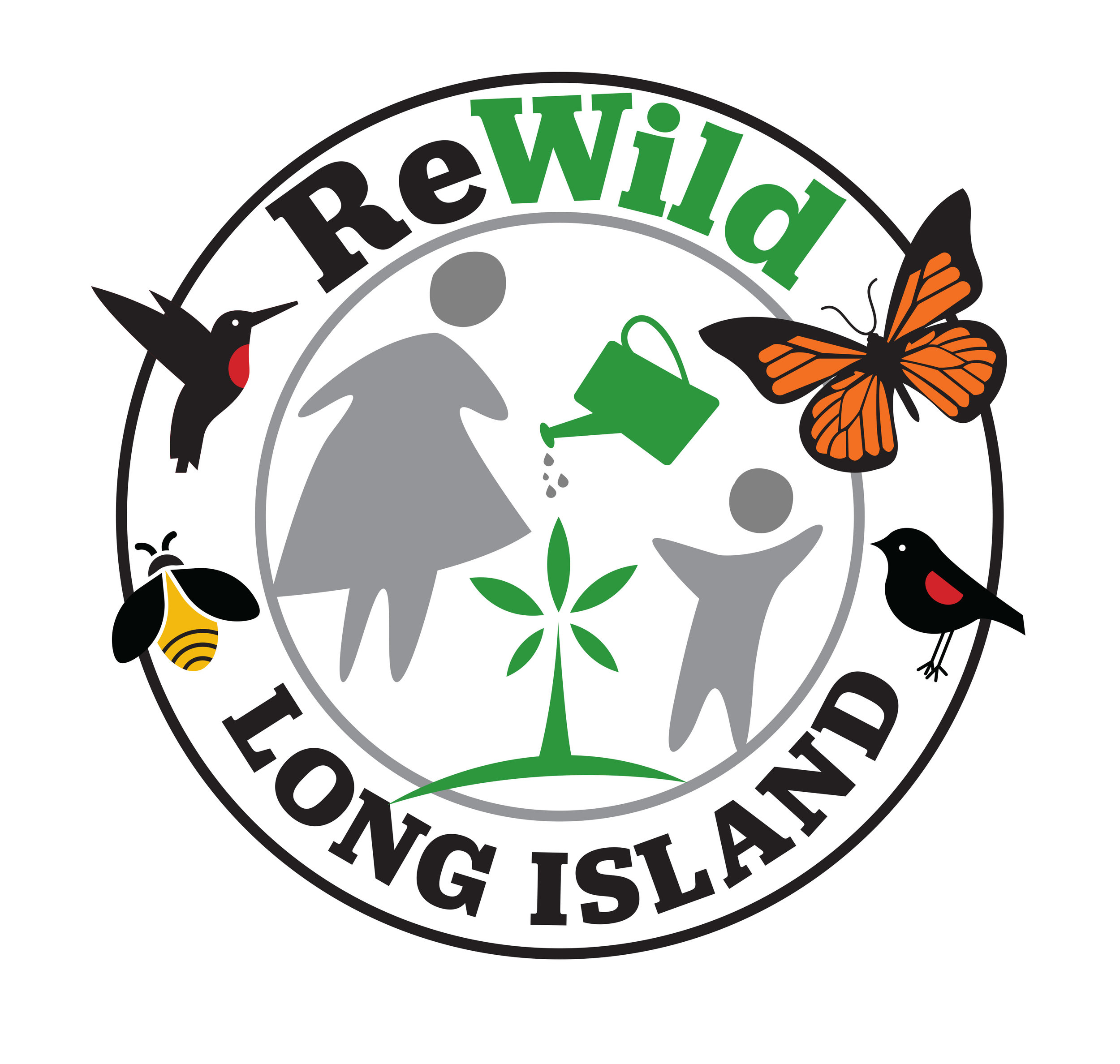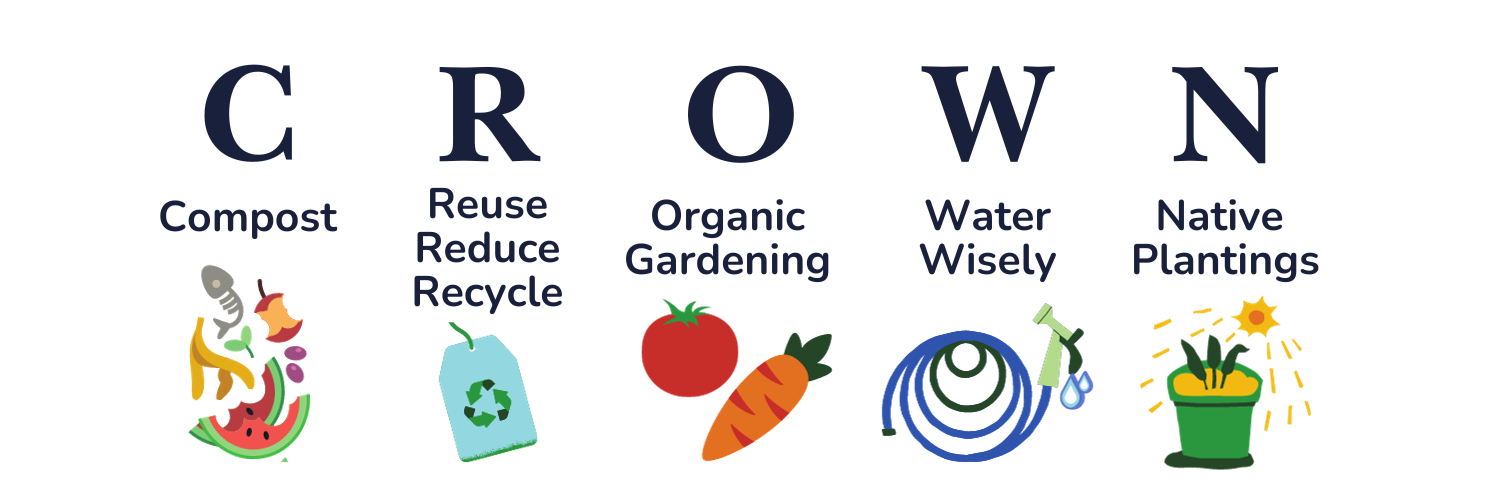Our Mission
ReWild Long Island is dedicated to collaborating with local communities across Long Island to protect and improve the biodiversity, resilience and health of regional ecosystems. This is achieved by adopting sustainable landscaping practices centered on the use of native plants.
ReWild employs practical demonstrations to engage, educate and inspire the community. For example, our Sustainable Gardens Tour showcases the beauty and practicality of sustainable landscaping. Participants visit various gardens that feature pollinator patches, rain gardens, meadows, and low-maintenance lawns, providing real-life demonstrations of how sustainable practices can be implemented in everyday settings.
ReWild believes that by leading by example, they can persuade more people to adopt sustainable landscaping as a path to climate resilience, biodiversity, clean air and water, and the overall well-being of our Long Island community.
Events & Activities for Learning & Inspiration
Whether you want to help birds and butterflies, add pollinator-friendly plants to your yard or a planter, deal with invasive plants without harming vital flora and fauna, start composting or get your hands in the dirt caring for pollinators gardens, water gardens and organic veggies, ReWild offers online and in-person learning opportunities. Join us!
Our programs and events include:
ReWild Events provide online and in-person opportunities to rewild yourself and your community throughout the year.
Through our Gardens Program, we have collaborated with local community groups to create 13 sustainable gardens in 2023. Another 21 gardens are coming to life in 2024.
The Summer Program to Fight Hunger and Climate Change provides internships for high school students motived by environment, food and social justice concerns.
The Speakers & Gardeners Workshop meets online each month to resolve our gardening issues and dive into topics that will enrich ReWild’s offering of library and public talks.
Native Plant Sales each spring and fall provide community members and groups access reasonably-priced, pesticide-free plants chosen specifically for Long Island’s ecosystem and to welcome local pollinators.
The Compost Initiative is reducing food waste and transform food scraps into soil food through drop-off programs and home composting education.
The ReWild Garden at Dodge demonstrates the life cycle in which we all participate. Community members, young and old, participate in weekly maintenance of the organic garden and compost pile. Food scraps from our kitchens and yards feed the soil, which yields healthy fruits and vegetables. The produce is donated to local food pantries, completing the cycle and illustrating the benefits of sustainable practices.
JOIN A REWILD PROJECT NEAR YOU!
Work with us on sustainable landcare for the health of our people and pollinators and soils to shores. Come solo, with a friend, family or group. You’ll leave knowing you are part of the ReWild community, making a difference.
To join the chapter closest to you and learn about our events:
Complete the form at the bottom of this page to receive our weekly newsletter that includes many of our events
Key Practices for Sustainability
ReWild promotes five practices that are key to sustainability, easily memorable as CROWN. See the downloadable pdf.
Compost: In our kitchens and yards, we produce lots of organic waste. This can be turned into rich soil that helps the environment by storing carbon and supporting underground habitats. Soil is the foundation of life. We use methods such as composting, Vermiculture (worm farming), and Bokashi fermentation to transform yard and food scraps into valuable soil food.
Reduce/Reuse/Recycle: Sustainable gardening should not become yet another excuse for buying stuff we don’t really need. Planting perennials reduces the carbon footprint associated with annual plants purchased from box stores each year. Our yards and kitchens produce a steady stream of organic and plastic waste that should be reduced and recycled with creative “second uses” for things that would otherwise be junked.
Organic Gardening: We also believe that locally grown healthy food enhances our health and our connection to the land. We encourage residents to grow food alongside their native plants that attract pollinators and use composted yard waste to mulch and fertilize gardens. We need to stop spraying chemicals that hurt pollinators and devastate the ecosystem. ReWild has also created strong partnerships with local organizations that focus on issues of food security and sustainability to help mitigate hunger in our community.
Water Wisely: Long Island’s aquifers, streams and ocean waters need to be protected from pollution and recharged as part of the water cycle. The use of rain barrels, bioswales, rain gardens and smart irrigation systems, coupled with native plantings, provide an feasible pathway towards landscaping that protects rather than degrades our waters.
Native Plantings: We work to introduce native plant based gardens in public and private spaces, transforming them into thriving micro-habitats for a variety of insects, bees, birds and butterflies. In addition, our mission is to educate the public at large the value of ReWilding, as well as to advocate for change in community practices and regulations. We seek to achieve the benefits of conserving water, using fewer chemicals & pesticides, as well as bringing more bees/birds/butterflies to our neighborhoods.
Just a few committed people can increase awareness and encourage environmental repair and restoration. We're focused on evolving the cultural mindset from valuing perfectly manicured, sterile spaces to embracing practices that support life and attract pollinators.
Rewild also emphasizes the importance of collaborating with political leaders to improve laws that protect our environment. This effort is rooted in our fundamental connection to the Earth.

